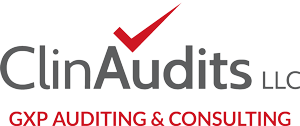 Blog
Blog
Introduction As wearable technologies become increasingly embedded in clinical research, ensuring data integrity and system validation is paramount. Regulatory agencies like the EMA and FDA have issued updated guidance to ensure that data collected from these devices meet the rigorous standards of Good Clinical Practice (GCP). This post explores how sponsors and investigators can ensure that wearable-derived data are reliable, traceable, and compliant. 1….
Learn More ▸
Introduction As digital health tools — such as wearables, mobile apps, and AI-driven platforms —become integral to clinical trials, regulatory agencies are evolving their frameworks to ensure these innovations align with Good Clinical Practice (GCP). This post explores how the FDA, EMA, and ICH are adapting GCP guidelines to accommodate digital technologies, while maintaining the core principles of participant safety,…
Learn More ▸
Introduction The integration of wearable technologies and digital biomarkers into clinical trials is revolutionizing how we collect, monitor, and interpret health data. From smartwatches tracking heart rate variability to continuous glucose monitors and digital inhalers, these tools offer real-time, patient-centric data. But with innovation comes responsibility — particularly in adhering to Good Clinical Practice (GCP)…
Learn More ▸
Global Experts in GxP Regulatory Compliance At ClinAudits, LLC, we specialize in providing customized auditing, monitoring, and quality assurance services to pharmaceutical, biotechnology, and medical device companies worldwide. With over three decades of experience, our team of seasoned professionals ensures that your clinical trials meet the highest regulatory and ethical standards. Our Core Service Offerings…
Learn More ▸
